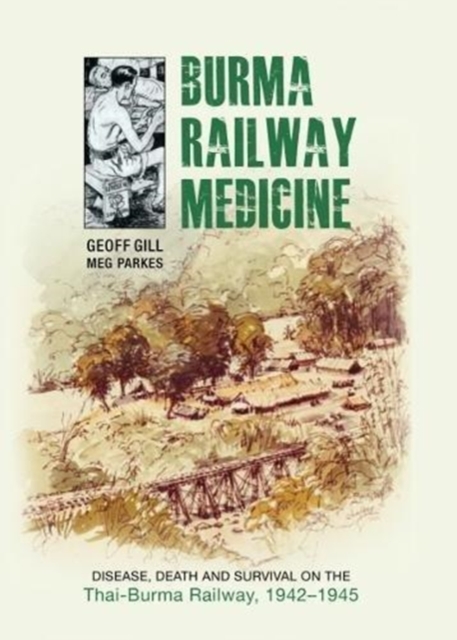
Burma Railway Medicine : Disease, Death and Survival on the Thai-Burma Railway, 1942-1945 Paperback / softback
by Professor Geoff Gill, Meg Parkes
Paperback / softback
Description
The 'Death Railway' was very well named. More correctly called the Burma or Thai-Burma Railway, it was a major project during Allied Far East imprisonment under the Japanese.
Over 60,000 prisoners worked on its construction, the majority of whom were British, and some 20 per cent died before release in 1945.
Working conditions were appalling, the climate inhospitable, and food supplies grossly inadequate, making the POWs terribly vulnerable to a plethora of tropical infections and syndromes of malnutrition.
No medical care was given by their Japanese captors, and it fell to the Allied POW doctors and medical orderlies to treat the sick, which they did with little in the way of medical equipment or drugs.
However, with remarkable ingenuity and inventiveness they dealt with recurrent attacks of malaria and dysentery, as well as tropical ulcers and beriberi, and devastating epidemics of cholera.
Their efforts undoubtedly saved hundreds of lives. This revealing book presents for the first time an in-depth analysis of the medical crisis in the Allied prisoner of war (POW) camps on the Thai-Burma Railway, between 1942 and 1945.While it is written mainly from a British perspective, the authors acknowledge the contributions made by the many different nationalities of medical staff working together. Burma Railway Medicine is the result of a long post-war collaboration between the Liverpool School of Tropical Medicine (LSTM) and British ex-Far East POWs.
Professor Geoff Gill led research which encompassed both the physical and psychological aftermath of these men's experiences.
In more recent years the LSTM Far East POW Project has moved to medical historical enquiries into the POW experience, including a major oral history project led by co-author Meg Parkes.
Part of this work is included in this book as "voices from the railway".
The aim of Burma Railway Medicine is to critically recount remarkable events which deserve recording and understanding.
It is an historical work that makes the detail of the medical battle to survive accessible to everyone, be they lay, healthcare or academic readers, and it has real relevance to medicine today, as well as to society in general.
Information
-
Item not Available
- Format:Paperback / softback
- Pages:272 pages, Over 60
- Publisher:Carnegie Publishing Ltd
- Publication Date:09/05/2017
- Category:
- ISBN:9781910837092
Information
-
Item not Available
- Format:Paperback / softback
- Pages:272 pages, Over 60
- Publisher:Carnegie Publishing Ltd
- Publication Date:09/05/2017
- Category:
- ISBN:9781910837092






